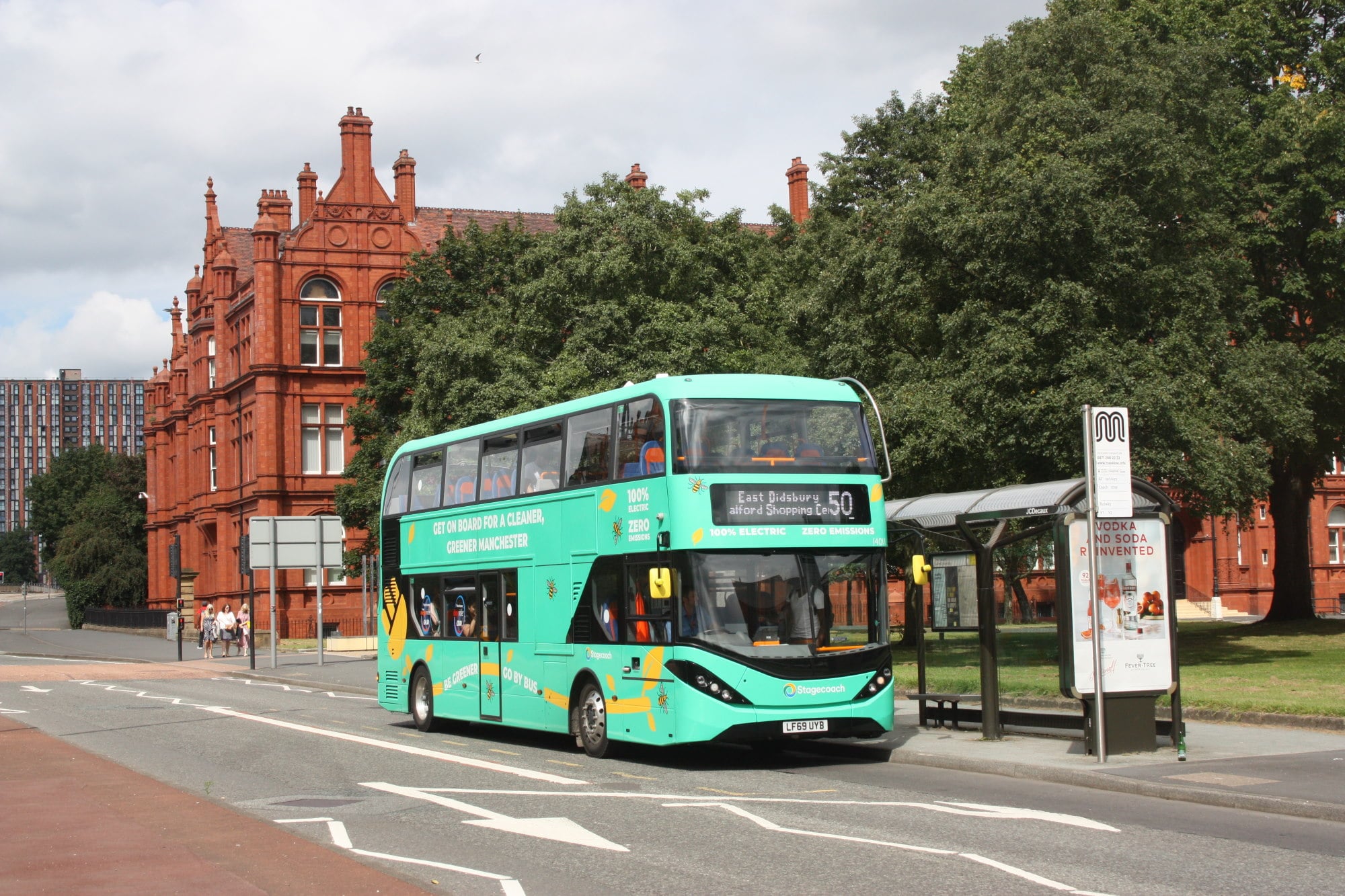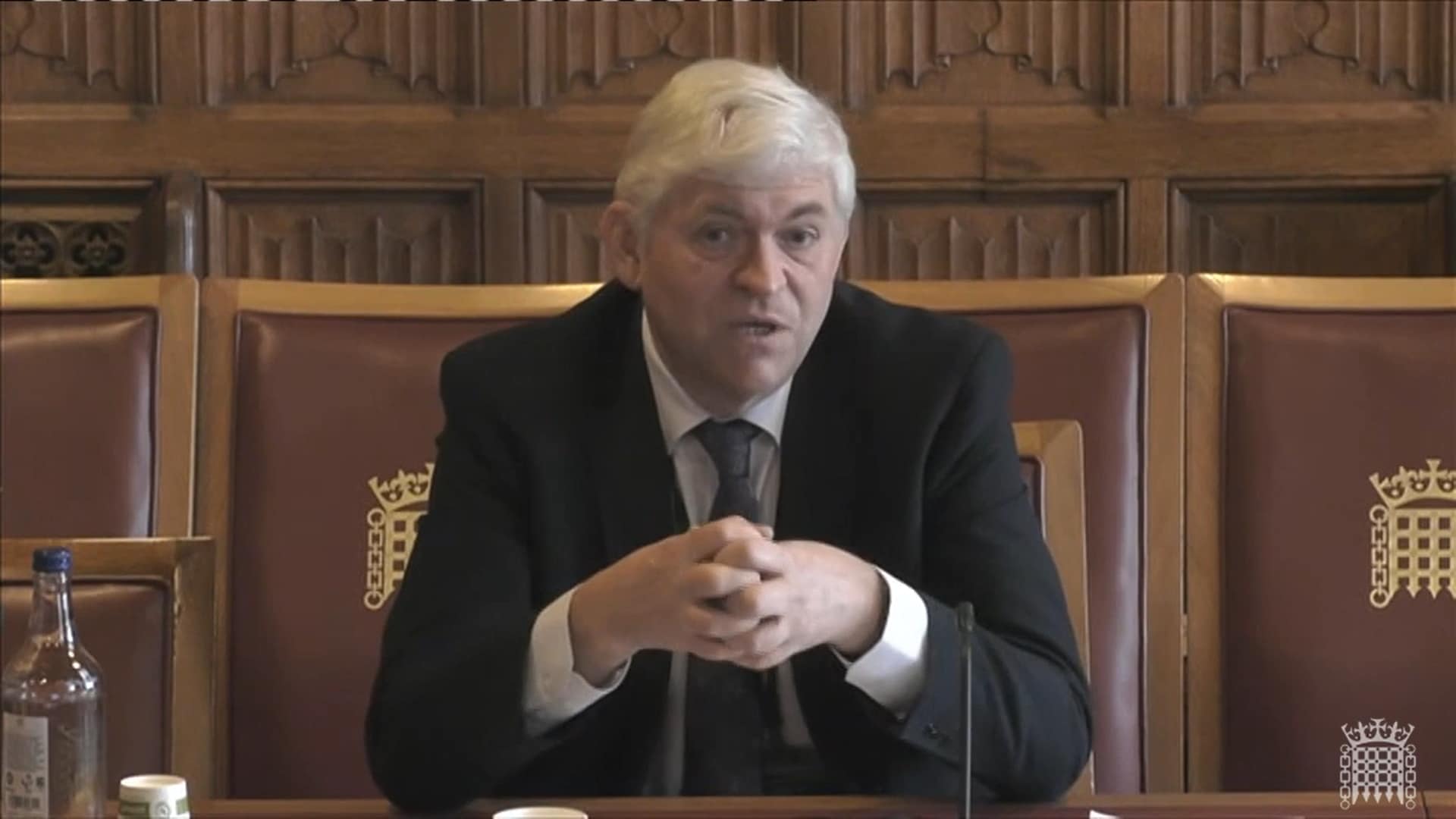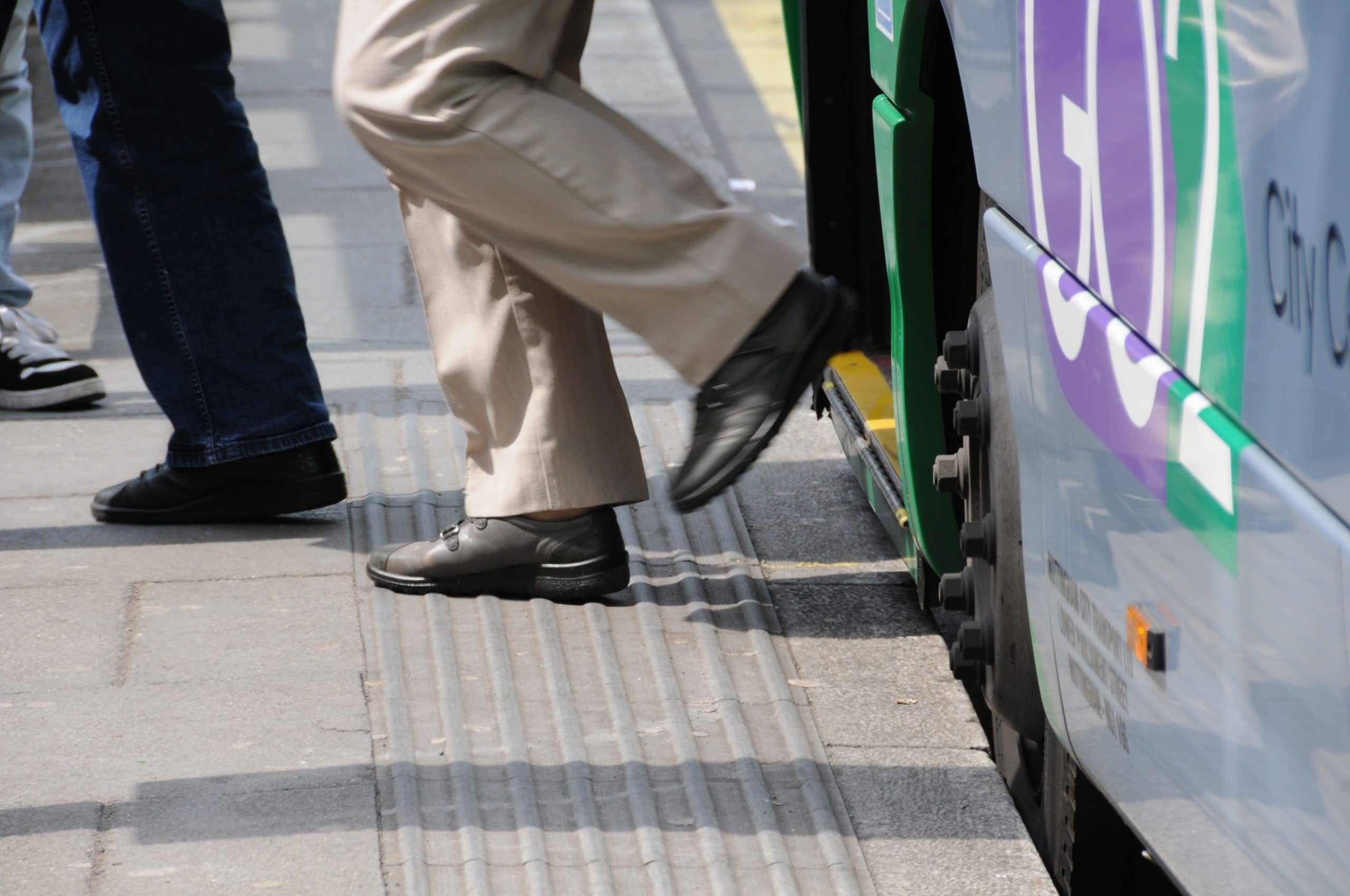Over one million new passengers could be encouraged onto the UK bus network through the switch to zero-emission buses (ZEBs), but passengers are reluctant to bear the brunt of the cost of transition, a new report from Stagecoach has found.
The findings come from Road map to zero: The transition to zero emission buses, what it means for people, and the journey to get there, which sets out Stagecoach’s vision for achieving the introduction of 100% ZEBs across the UK. It builds on Stagecoach’s existing target to achieve a ZEB fleet by 2035 and hopes to support other bus operators in achieving the same.
In addition to the encouraging findings from non-bus users who say they would start to use services “if electric buses were introduced in their local area, as long as fares and frequency remain the same” the report also reveals nine million current passengers would “expect to use the bus more often”. Almost one in five people interviewed in the East of England would use the bus more if ZEBs replaced diesel buses, while two thirds wanted to see their local bus company move to “using only ZEBs”.
The report therefore looks to highlight operational and commercial challenges operators need to overcome to achieve full transition. It covers infrastructure upgrades – as in electrifying all vehicles and depots, and the consequences of the space and charging time requirements that goes with that – as well as funding and upskilling the workforce.
Getting the transition wrong, however, could have “significant consequences” both for passengers and the sustainability of the bus networks. That primarily comes down to fares, with Stagecoach’s independent polling revealing that a 10% increase in fares to fund the ZEB transition would put off over 12m passengers. Equally, if punctuality, frequency and passenger experience did not improve, 14.5m say they would be left “disappointed”.
Stagecoach therefore proposes 21 specific recommendations which will allow the industry to transition, developed in a roundtable with stakeholders and policymakers.
Key among those specific recommendations include collaborative working between operators, local authorities and national government to explore new funding models and local revenue raising solutions; promoting the introduction of ZEBs to maximise them as a “trigger point” for modal shift; green engineering apprenticeships for young people to create a future workforce; “local transport decarbonisation partnerships” between operators, distribution network operators (DNOs) and local authorities to meet grid capacity requirements; and an assessment of the need for a new statutory duty on DNOs to prioritise grid infrastructure upgrades which have a “significant social and community impact, such as bus charging infrastructure”.
“This report demonstrates the potential prize ahead in terms of moving people out of cars and onto lower carbon forms of transport, if we get the transition to ZEBs right,” says Darren Roe, Managing Director of Stagecoach East. “Not only can we reduce emissions by transforming the environmental footprint of the bus fleet, but we can build a new generation of bus passengers here in the East of England and more widely across the UK.
“This is exciting news for bus operators, the wider industry, government, local authorities and crucially for passengers. However, it’s clear that this is conditional on us all getting the transition right and ensuring that the priorities of passengers are put first.
“Our research makes clear that this transformational change needs to be done carefully. This road map is our contribution to the wider debate, setting out a plan that will support the whole sector and make this a success. It’s clear that to achieve this we must take a collaborative approach that meets passenger expectations and focuses on improving the passenger experience. If we get this right there’s so much to gain, but if we don’t we risk setting back the transition to net zero.”
The recommendations in the report have already been supported by the Department for Transport, Zemo Partnership, Campaign for Better Transport and Transport Focus.

























